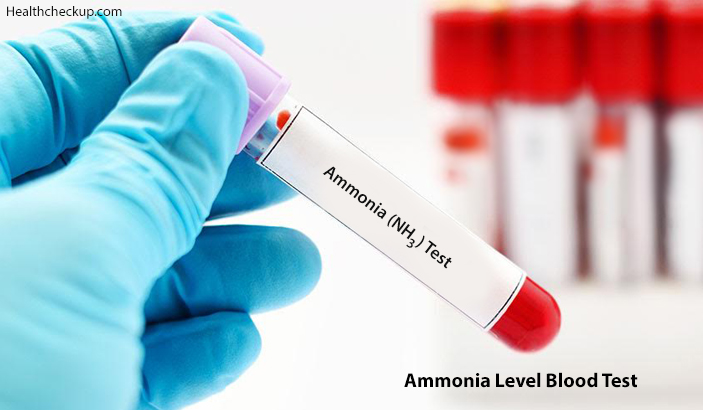Not having a normal ammonia level in the blood can affect the whole body. One way to know if your blood has a proper ammonia level is by going for an ammonia level blood test.
What Is An Ammonia Blood Test?
It is a simple blood test used by doctors to measure the ammonia amount in a person’s blood. It is the only way to know high, low, and normal levels of ammonia in the body. When the body breaks down the protein, bacteria in the gut and cells in the body make ammonia. In this sense, it is a waste material that is again turned into urea. When urea isn’t properly disposed of it leads to other health issues.
Why Is The Ammonia Blood Test Done?
It is done when a doctor asks for it. A doctor probably will recommend this test when a person has neurological changes such as getting into a coma for no valid reason or passing through a sudden confusion.
This test may also be done on a newborn if they have the below signs and symptoms during the first few days following birth;
- Vomiting
- Not having energy
- Seizures
- Irritability
This test may also be suggested both in infants and young ones if they suspect Reye’s syndrome or Urea cycle disorder.
Some other causes why a doctor may suggest consist of;
- When one has liver disease
- To know how given treatments for hepatic encephalopathy are working.
How Is The Test Done And How To Prepare For The Test?
A lab technician will draw a blood sample from one of the veins in the arm. Such drawn blood is sent for further tests.
Before going to this test do not smoke or exercise. Tell the technician and doctor about all the herbs, medicines, vitamins, and supplements you are taking. It should include all the OTC drugs and aspirin also.
Normal Ammonia Levels
- 170-340 mcg/dL in new-borns
- 70-135 mcg/dL in children and
- 15-60 mcg/dL in adults
However, the above parameter does not hold good as normal ammonia levels cirrhosis.
Causes Of High Ammonia Levels
Having high levels of ammonia may mean the below following;
- Liver diseases like cirrhosis or hepatitis
- Kidney failure or kidney disease
- Hepatic encephalopathy
Other causes of high ammonia levels;
- Bleeding in the intestines, stomach, esophagus, or other parts of the body
- Alcoholism and drug use, inclusive of narcotics and medications that absorb extra fluid out of the body (diuretics)
- Smoking
- Recent Exercising – Muscles manufacture ammonia when they’re active
- Tourniquet usage heightens the levels of blood ammonia
- Liver and kidney malfunctions
How To Lower Ammonia Levels In The Blood?
There are many medical treatment procedures to lower high ammonia levels such as;
- Dialysis (artificial purifying of the blood), using tools such as artificial livers or dialysis in a hospital setting
- In very severe cases you must do a kidney or liver transplant
- Medicines to transform ammonia into another molecule, such as L-ornithine-L-aspartate
- Medicines to lower the quantity of ammonia in the blood or gastrointestinal tract, such as antibiotics (neomycin) or special sugars (lactulose)
The other natural ways include;
- Avoid smoke, drugs, and alcohol
- Keep your blood pressure in control
- Eat a low protein diet if you have a past of liver issues
Causes Of Low Ammonia Levels
A low ammonia level is usually the cause of very high blood pressure that comes on suddenly and quickly. Persistent low ammonia levels in the body aren’t a good sign.
Tips To Improve Ammonia Levels
The one way to improve ammonia levels is to keep your blood pressure under control. Besides, one should also see that the liver and kidney are in good condition. One may also take high protein food to increase ammonia levels if the condition isn’t the result of some health ailments.
How To Maintain Normal Ammonia Levels?
One should first know if their levels are high or low. If one has high levels follow the means and methods to lower the ammonia content and if one has low levels one should follow the above-said tips to increase the ammonia levels.
To sum up, one should go for an ammonia level blood test if in doubt. Check for signs and symptoms mentioned above so that you can know if your ammonia levels are normal or not.

Sudheendra is a passionate blogger for 8 years and holds a Degree in Journalism & Mass Communications. His writings particularly focus on health, medicine, diet & lifestyle. For him, everything that interlinks and relates to health & medical world entices him. His write-ups aim at educating people not by just giving facts but by infusing human touch.








